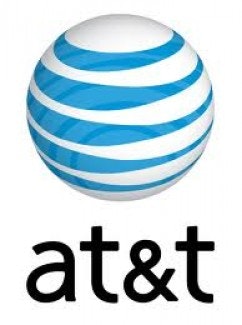AT&T Inc. (NYSE:T) made a bold bet that it could acquire T-Mobile from Deutsche Telekom AG (PINK:DTEGY) and, in one transaction, boost its market share and, more importantly, ownership of wireless spectrum. The government, however, can’t seem to leave Ma Bell well enough alone and, essentially, scuttled the deal. That has sent AT&T into guerilla warfare mode. It has notable implications for the industry and AT&T.
It’s About Spectrum

Ma Bell tried to leap over Verizon with its proposed purchase of T-Mobile. That deal would have made AT&T the undisputed king, but would have cemented the duopoly that AT&T and Verizon effectively have today by removing one of the few notable competitors. While customers don’t seem to mind the duopoly, the government did and it effectively blocked the deal.
While losing the ability to brag about having the most customers was a bad thing, the real trouble from the busted deal was the spectrum that slipped through AT&T’s fingers. Having the spectrum to serve existing and potential customers is the real challenge today for cell phone providers.
Data, Data, Data
As wireless technology has advanced, so, too, has the use of that technology. It isn’t uncommon for a single user to have a web-enabled cell phone, a tablet of some sort, and a laptop computer, all of which are capable of connecting wirelessly to the Internet. Years ago, it would have just been the cell phone and that would have only been used for voice calls.
Making matters worse is the increased use of data. Sending a text message or receiving an email isn’t problematic, even when multiplied by a cell phone provider’s entire customer base. What gets more difficult is services like streaming video and music. Netflix, Inc. (NASDAQ:NFLX) and Pandora Media Inc (NYSE:P) are two examples of companies complicating the spectrum issue.
In the case of Netflix, and challengers like Amazon.com, Inc. (NASDAQ:AMZN)’s Prime service and privately held Hulu, the massive store of movies and television shows makes watching what customers want easy. Being able to stream that video over wireless spectrum makes video available pretty much anywhere. This is one reason why Netflix ended 2012 with over 27 million U.S. customers.
The U.S. operations were so strong, in fact, that the company turned a profit when the market expected a loss because of overseas expansion efforts. The shares skyrocketed on the news. The big news for the cell phone providers, however, should be that they need more spectrum—Fast! People want what they want where they want it, and that increasingly means on the train, in the car, on a boat, or just walking around a park.
Cell phone companies that don’t have adequate spectrum will get pegged as providing poor service. Poor service leads to customers changing providers. In AT&T’s case, it can no longer rely on an exclusive right to sell Apple Inc. (NASDAQ:AAPL)’s iPhone to cover up service issues.
Going Gorilla
Spectrum, however, is in short supply and getting more is, effectively, controlled by Uncle Sam. All the more so since the government intervened in the T-Mobile deal. AT&T has been forced to collect spectrum in drips and drabs. The $780 million Atlantic Tele-Network deal is just one such drip, as AT&T has been in active pursuit of spectrum over the last year, using purchases and various deals to fortify its network.
That’s a lot of legwork. Such wheeling and dealing takes time and can distract management teams. Verizon, too, has to be on watch, as it can’t sit idle on the spectrum front. With big deals likely off the table for the industry giant, it will also have to be creative.
Interestingly, Atlantic Tele-Network bought the spectrum it just sold to AT&T from Verizon in 2010. The price Atlantic Tele-Network paid just a few years ago was $223 million, and that deal included more customers. This suggests that the price of spectrum has gone up three fold in just three years. In fact, the big boys are even trading spectrum with each other in some cases to gain approval for bigger deals. The cell phone space is going to be a weird one for a little while.
Investor Beware
While the growth in cell phone usage is still a great story; there are limits to how much spectrum is available. This means that the cell phone providers can only do so much before things start to break. Either their costs will go up as they try to find new spectrum or they will have to find a way to limit usage. The latter is the more likely outcome, over time, anyway. Either way, investing in the space will mean an increasing focus on spectrum and controlling the best customers, and less of one on raw customers counts.
Yours,

The article Spectrum Wars, Piece By Piece originally appeared on Fool.com and is written by Reuben Gregg Brewer.
Copyright © 1995 – 2013 The Motley Fool, LLC. All rights reserved. The Motley Fool has a disclosure policy.




